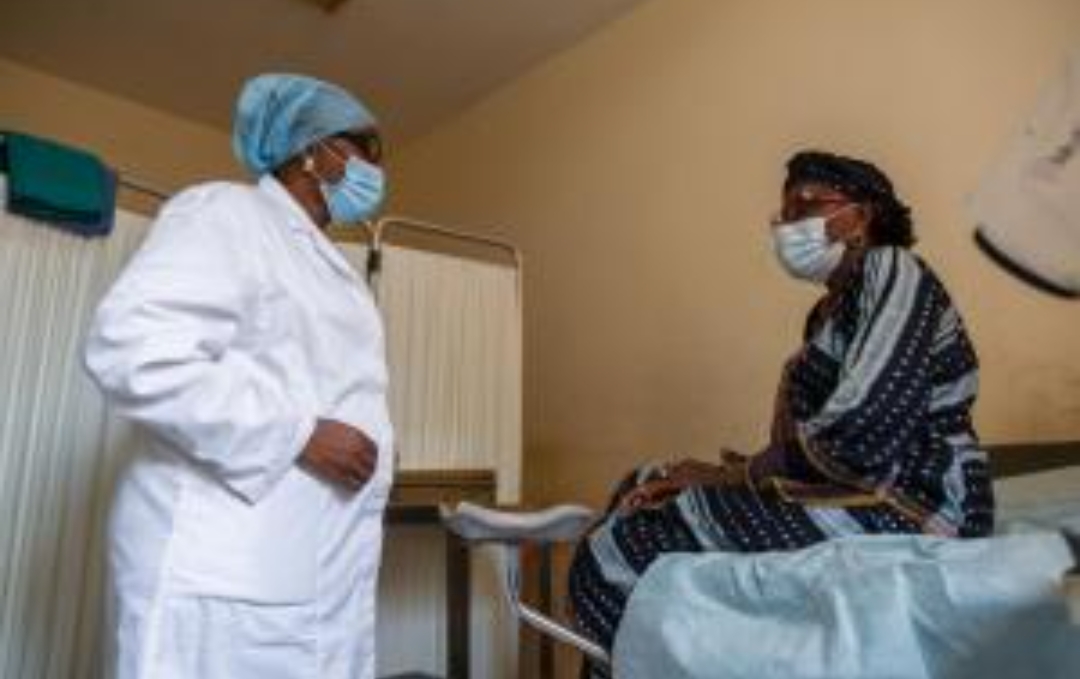VVA Tasks Africa Governments, Development Partners To Prioritize Elimination Of Cervical Cancer

By Edu Abade
A group of public health and tobacco control advocates, the Vital Voices for Africa (VVA) has charged African governments and their development partners to prioritize cervical cancer prevention and control, maintaining that there is a real opportunity to completely eliminate the disease.
Executive Director of VVA, Caleb Ayong, who made the appeal recently during #HerReasonForBeing virtual space, a weekly event hosted by Being Africa, said a major factor that discourages women from going for screening remains the embarrassing fact that they must expose their private parts to medical practitioners, whom in most cases, are men.
Medical experts warn that early stages of cervical cancer have no symptoms, and most cases of the disease are only detected when they are at an advanced stage, where treatment is no longer possible. They, therefore, recommend regular screening to ensure early detection, when the condition can be completely treated.
In August 2020, the World Health Assembly adopted the Global Strategy for cervical cancer elimination, which aims to have countries reach and maintain an incidence rate of below four per 100 000 women by 2030. According to the WHO, achieving that goal rests on three key pillars and their corresponding targets including getting 90 percent of girls fully vaccinated with the HPV vaccine at the age of 15.
Others are getting 70 percent of women screened using a high-performance test around the age of 35 and at the age of 45 and managing 90 percent of women with pre-cancer treated and 90 percent of women with invasive cancer.
Ayong argued that if HPV vaccination and screening for cervical cancer are prioritized by governments and development partners in Africa, we can effectively meet the WHO global strategy and eliminate the disease in the continent.
He stressed the need to invest in making less intrusive screening methods more available and affordable so that more women can be comfortable getting screened, noting: “There are currently two approved screening methods for cervical cancer, which are the commonly used pap smear undertaken by a healthcare professional and the more expensive but self-applied HPV DNA.
“It is possible to eliminate cervical cancer, but it is not a priority for African governments and perhaps, development partners. I urge governments, international donors and development partners to make the eradication of cervical cancer a priority. It can be done, but it is not a priority. That is the problem.”
Speaking further, he said: “If we invest in making cervical cancer screening more user-friendly, and less intrusive, it could help get many more women screened across the continent. Once we can get more women screened, we will be able to identify cervical cancer at an early stage, and the automatic result is that we will have fewer cases where the disease reaches an advanced and fatal stage.”
Using the example of the Roll Back Malaria initiative where massive investment continues to be made to sensitize populations on malaria prevention and control, and to provide mosquito bed nets to every household, Ayong called on partners and governments to undertake similar investments for cervical cancer eradication in Africa. “It is expensive, but the good thing is that it only concerns women. More so, women of a certain age limit. So, why not target the age group, invest in these women and get them protected once and for all?” he asked.
“The WHO states that cervical cancer is the fourth most common cancer in women globally with around 660 000 new cases and around 350 000 deaths in 2022. The highest rates of cervical cancer incidence and mortality are in low-and middle-income countries.
“This can change if we invest in ensuring that HPV vaccines are available for every girl of vaccination age, the self-applicable and more efficient HPV DNA test is provided at least twice to every sexually active female as recommended by the WHO and strategies are put in place to ensure effective screening and vaccination.”










